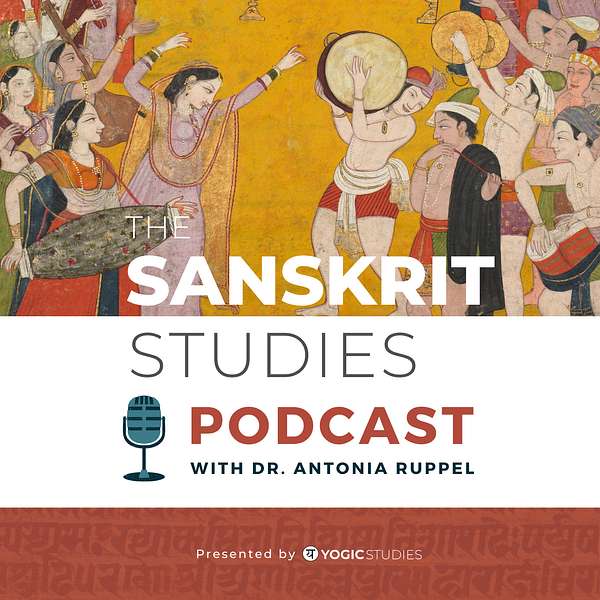
The Sanskrit Studies Podcast
The Sanskrit Studies Podcast
6. Mary Brockington: The Many Incarnations of Sītā
My guest today is Mary Brockington. You can read more about her and her publications here. She read French at Oxford, and lists her teachers Reginald Perman and Mollie Gerard Davies among those who had a great influence on her.
Her unique research perspective results from her applying her knowledge of early French texts such as the Roman de Tristran and Old French Epic in general to the study of the Sanskrit Epics, especially the Rāmāyaṇa. This research resulted e.g. in her book The Motif of the Separating Sword in World Art and Literature and articles in The Modern Language Review (here, here and here).
Further information about the Dubrovnik Conferences on the Sanskrit Epics and Purāṇas (DICSEP) may be obtained from Ivan Andrijanic (iandrij108 (at) gmail (dot) com).
If you are interested in the texts, both ancient and modern, that she mentions, here is some information relating to the Adbhutarāmāyaṇa (Adbhut Rāmāyaṇa, attributed to the Sage Vālmīki, 2001: trans. Shantilal Nagar (Delhi: B.R. PC)), the Kashmiri Rāmāvatāracarita (Rāmāvatāracarita, composed in Kashmiri by Śrī Prakāśa Rāma Kuryagrāmī, 2001: trans.
Shanti Lal (sic) Nagar. Rāmāyaṇa in Regional Languages Series 2 (New Delhi: Munshiram Manoharlal)), to Otto Jespersen’s Growth and Structure of the English Language (download the book here), Henri Bergson’s Le rire, and Mary and John Brockington’s Rāma the Steadfast.
The poem by Alexander Pope that Mary quotes can be found here, and you can read about the (apparently very useful!) torture that is explication de texte here (see also the French version) and here.
If you want to know more about how Rāma and Sītā appear in British education, you can find a general overview here (search the text for 'Rama') and a pdf of the actual syllabus here.